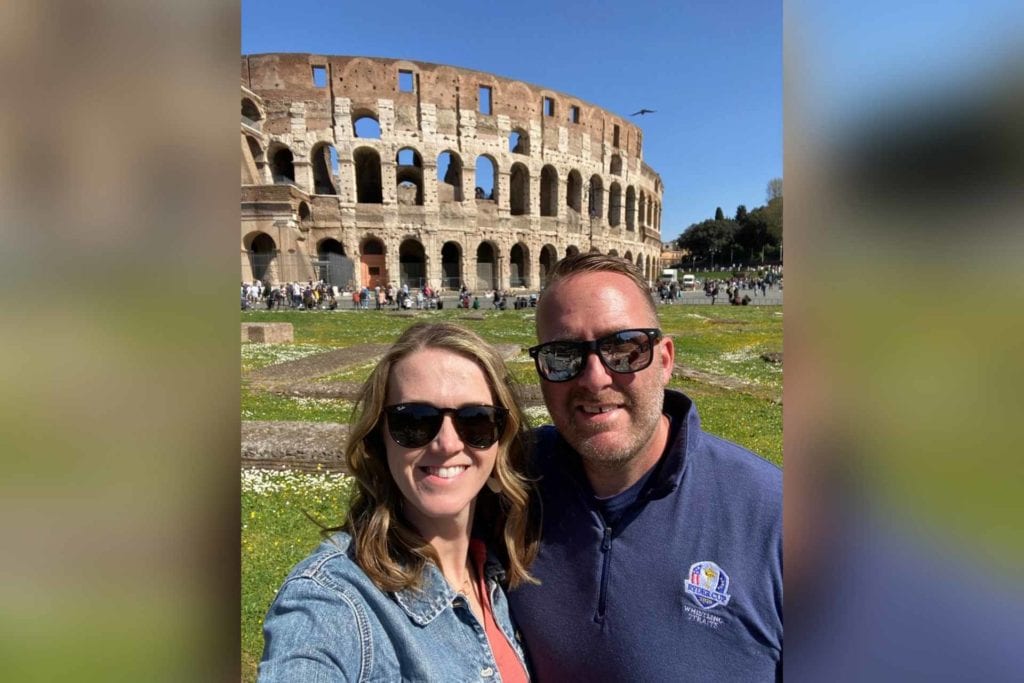MORGANTOWN, W.Va. – WVU Medicine is launching a virtual support group for West Virginians battling brain tumors thanks to a $15,000 grant from brain cancer nonprofit Gladiator Project.
The grant awarded to the WVU Rockefeller Neuroscience Institute (RNI) will provide digital tablets and other resources for 20 patients diagnosed with glioma, a type of tumor that originates in the glial cells of the brain and spinal cord. The goal is to connect and engage glioma patients across the Mountain State, where there are currently no support groups registered with the American Brain Tumor Association.
Christopher P. Cifarelli, M.D., Ph.D., M.M.M., WVU Cancer Institute Gamma Knife program director and neurosurgeon at RNI, said access to brain tumor-specific support groups is limited in West Virginia by the rarity of the diagnosis and the state’s rural setting. He noted that virtual support groups are growing due to greater use of telehealth and other virtual meeting tools in conjunction with the COVID-19 pandemic.
“We are incredibly grateful for this generous award from Gladiator Project,” Dr. Cifarelli said. “Given the rare nature of primary brain tumors and the complex landscape of multidisciplinary care that continues throughout a patient’s care, access to a patient-driven support group has the potential to improve quality of life for patients and caregivers. Experience sharing around difficult health issues has been shown to decrease anxiety and increase patient comfort levels.”
According to the National Institutes of Health, about 20,000 glioma cases are diagnosed each year in the United States. About 12,000 of those patients are diagnosed with glioblastoma, a rare and aggressive form of brain cancer that is often deadly.
Gladiator Project is a nonprofit organization founded by West Virginia native and WVU graduate Eric South and his wife, Leslie, in Nashville, Tennessee. Since discovering he had a glioblastoma in early 2021, South has undergone two surgeries and participated in clinical trials at the University of Texas MD Anderson Cancer Center in Houston and the University of California at Los Angeles. He continues to receive care at Vanderbilt University Medical Center.
Gladiator Project works to raise money for brain cancer research and provide support for patients and their families to fight the disease “like gladiators.”
“As a coal miner’s son who grew up in the rural hills of West Virginia, I am so incredibly proud of the efforts of Gladiator Project and our board of directors to support such a worthy program to provide access to healthcare and a patient support network for those suffering from a brain tumor diagnosis,” South said.
Patients interested in RNI’s neuro-oncology virtual support group must be 18 years old, treated for high-grade glioma through WVU Medicine, participate in at least one virtual support group activity every three months, and maintain the tablet for informational purposes only as related to brain tumor treatment and patient support activities.
The WVU Cancer Institute previously established a private Facebook support group, called Living Beyond Cancer, open to patients and/or caregivers battling any type of cancer. A podcast and professional web course are also available to provide support as part of the Living Beyond Cancer program.
The Gladiator Project grant was awarded through the WVU Foundation, the nonprofit organization that receives and administers private donations on behalf of the University and its affiliated entities.













